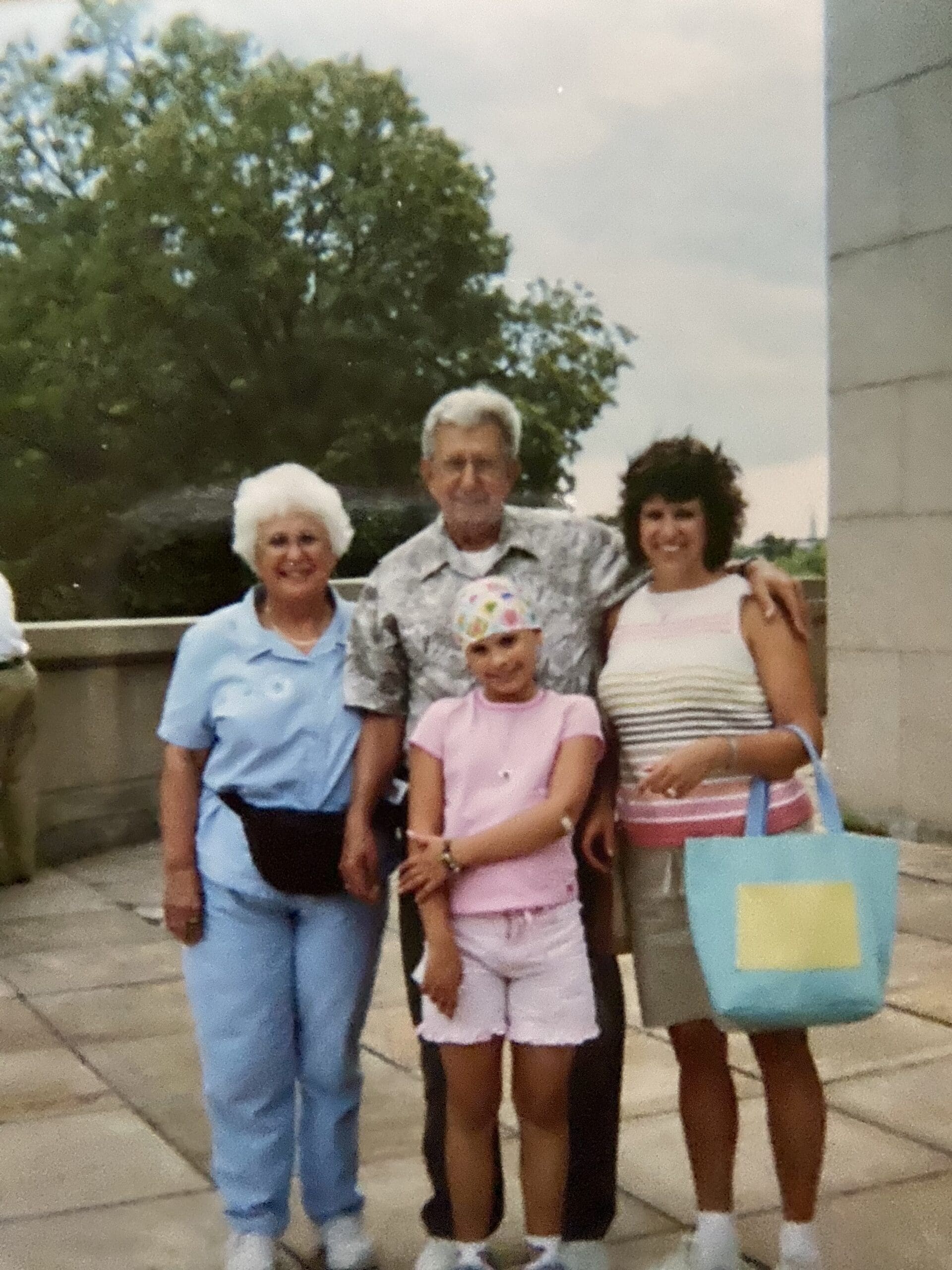Real talk, real tools, real healing—for those navigating hair loss with courage, creativity, and self-love.
Let’s be real—hair loss is more than just physical. It can shake your confidence, challenge your identity, and leave you feeling so alone. I know that feeling because I’ve lived it.
I’m Sarah—a mental health counselor, alopecia coach, and someone who’s spent years learning to love what I once tried to hide. Now, I help others do the same.
At Embrace You Coaching, I’m here to walk with you through the messy, emotional, empowering process of navigating hair loss. Whether you’re newly diagnosed or years into your journey, this is a space for support, healing, and showing up exactly as you are—bold, beautiful, and becoming.
Let’s work together to rewrite your story—not to fit someone else’s beauty standard, but to finally embrace your own.
Hi, my name is Sarah and I’m a master’s level mental health counselor who was diagnosed with alopecia areata at 5 years old. Throughout my life, I’ve gone through many emotional stages to finally get to a place of acceptance with my hair loss. My educational background in mental health has given me the skills to self-regulate and process the emotions that impact my relationship to my alopecia and now, I want to help give others the tools to do the same!
At Embrace You Coaching, you’ll have the opportunity to work with me through a curriculum that focuses on learning coping skills, facing the grief of hair loss, re-writing personal beauty standards, creating boundaries, and finding acceptance within yourself. I also offer more specialized sessions around topics of alopecia in the workplace, dating with alopecia, education around wigs and head coverings, and support for parents of children with hair loss.
Being diagnosed with alopecia and hair loss can be life-changing and often increases your risk of mental health symptoms related to anxiety and depression. Working with me, you can find comfort in knowing that you’re walking alongside someone who has experienced the journey of hair loss and has the education to help you to not only manage the emotional difficulties of hair loss but thrive as the beautiful and unique individual that you are!
Meet Your Coach
What I Offer
Because hair loss touches more than just your scalp:
Navigating alopecia in the workplace
Dating with alopecia
Coaching for parents of children with hair loss
Wig + head covering education
Specialized Sessions
A personalized coaching journey that walks you through a custom curriculum built around:
Developing emotional coping skills
Grieving hair loss (yes, that's a thing!)
Rewriting what beauty means to you
Creating boundaries + finding peace
Coming to a place of self-acceptance
1:1 Coaching
Is Coaching Right For You?
If you’re:
An adult dealing with hair loss (new or not-so-new)
A parent wanting to better support your child
Tired of hiding, and ready to start healing
Looking for real support from someone who gets it
Then, yes. Coaching with me is exactly where you need to be.
- Alopecia is an umbrella term for hair loss, which includes alopecia areata (characterized by patchy hair loss), alopecia totalis (complete hair loss on the scalp), and alopecia universalis (total hair loss on the whole body)
- Alopecia is typically considered an autoimmune disorder, but some types can be caused by hormonal changes as well
- Having a chronic condition like alopecia puts people at a higher risk for mental health conditions like depression, anxiety, and PTSD
Step Zero — Education
Step 0
- Coping with hair loss can mean that we have to grieve who we were when we had a full head of hair
- Experiencing grief emotions such as sadness, anger, and denial are normal when we lose a big part of our physical selves
- Express what having hair meant to you and the importance of it in your life
- Work to express with grief to others who might not understand what you’re going through
Step One — Grief
Step 1
- When working through difficult emotions, it’s important to have skills that will help you cope with what you’re experiencing
- Mindfulness and somatic-basic coping skills can be impactful in challenging moments
- Learn to recognize when your body is giving you clues that you need to take a break and utilize a skill
- Take a holistic approach to your overall health including your mind, body and spirit.
Step Two — Coping Skills
Step 2
- Since hair is an aesthetic part of what it means to be human, we’ll be exploring and tackling both personal and social beauty standards.
- Through contemplation and reframing our beliefs, we’ll begin to re-write our own beauty standards.
Step Three — Beauty Standards
Step 3
Step 4
- Learn how to communicate your feelings when someone in your life makes upsetting comments (ex. you have such a pretty face, now you can change your hair whenever you want, it’s just hair)
- Creating boundaries with others allows for deeper understanding and respect in relationships
Step Four — Boundaries
Step 5
- Find or build community with others who might be experiencing something similar
- Attend online or in-person support groups
- Ask someone in your area to meet up for coffee/lunch
- Make an effort to tell your story to others
Step Five — Connection
Step 6
- Work to establish and accept a new normal for yourself by utilizing the skills you’ve learned so far
- Find and identify your value outside of your hair/physical looks
- Build your self-esteem and confidence through self-expression and personal creativity
Step Six — Acceptance
Other Tools
- Help and information surrounding wigs/scarves/eyebrows/eyelashes
- The workplace and alopecia
- Going to school with alopecia
- Dating with alopecia
- Nutrition/self-care with autoimmune
- Tools for parents with children with alopecia
Other Available Tools & Topics
Coaching Plan
Q: Who would benefit from alopecia and hair loss coaching?
A: Coaching sessions would be most beneficial for adults who are newly experiencing hair loss or have had alopecia for a while and are looking to become more comfortable and confident in themselves. Coaching is ideal for people who are ready and willing to put in the work to improve their lives and self-image when it comes to alopecia and hair loss. I also offer specialized sessions for parents and caregivers of children experiencing alopecia, those looking to learn more information about wigs and head coverings, working adults navigating the workplace with alopecia, and individuals interested in finding support for dating with alopecia. Fill out a coaching inquiry form and I’d be happy to reach out and schedule a 15 minute consultation call to see if alopecia/hair loss coaching is right for you.
Q: What’s the difference between therapy and coaching?
A: While coaching and therapy can seem similar on the surface, they serve very different purposes. In this context, coaching is a service that is specialized and focused on a specific area of life while therapy can be more all encompassing. Furthermore, therapy provides a more clinical environment that includes diagnosis and treatment of mental health conditions and can often be a more long-term commitment. Coaching, on the other hand, is not designed around the diagnosis and treatment of mental health and, instead, is future-focused, goal oriented and is often a shorter-term commitment. While both coaching and therapy have their place, make sure that you are choosing the service that is most appropriate for you.
Q: How many sessions should I sign-up for?
A: Unless you’re interested in one of my specialized sessions, I require a 3 session minimum for 1:1 coaching utilizing the curriculum. If you’re interested in going through the entire curriculum, I would recommend my 12 session package that is priced at a discounted rate.
Q: When do I pay for sessions?
A: You’ll pay for sessions prior to our scheduled meeting. If you have not signed our contract and paid your invoice for the session at least 24 hours before we meet, I will have to reschedule or cancel the session.
Q: Is there a refund policy if I choose not to attend?
A: I do not give refunds for coaching sessions per the contract that you’ll sign before attending a session. If you’re unable to attend a session, just reach out to me and we can reschedule.
Q: How often should I have coaching sessions?
A: I would recommend spacing out sessions either weekly or bi-weekly, however, we can work together to figure out what would work best for your schedule.
Q: What is the cancellation policy?
A: Please try to give me at least a 24 hour notice if you need to cancel your session, however, I understand that there are special circumstances that may prevent you from attending.




